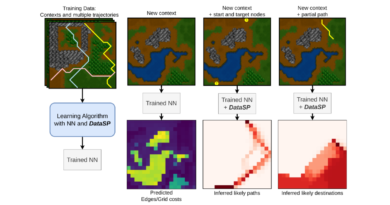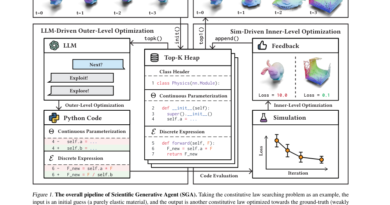Boosting NLP with Linguistic Insight
Artificial Intelligence (AI) has made significant advancements in recent years, particularly in the field of Natural Language Processing (NLP). Large Language Models (LLMs) like GPT have gained attention for their impressive language generating capabilities. These models can produce fluent text without explicitly built grammar or semantic modules. However, linguistic expertise remains crucial in NLP research, and the RELIES framework highlights the importance of leveraging linguistic insights in shaping the future of large language models.
The Significance of Linguistic Knowledge
In a recent study conducted by researchers from the University of Zurich and Georgetown University, the role of linguistic expertise in NLP was explored in depth 1. While LLMs excel in capturing complex linguistic patterns, semantics, and contextual dependencies 2, linguistic insights contribute to NLP in several crucial areas.
The RELIES framework encapsulates six major facets where linguistics contributes to NLP:
- Robustness: Linguistic knowledge helps in building more robust NLP models that can handle a wide range of inputs, including noisy or ambiguous text 1. By understanding the intricacies of human language, linguistic experts can guide the development of models that perform well even in challenging scenarios.
- Ethical Considerations: The impact of LLMs on society raises important ethical considerations. Linguistic expertise is necessary to address issues such as bias, fairness, and inclusivity in language generation 3. By incorporating linguistic insights, researchers can work towards developing AI systems that are more responsible and equitable.
- Lexical Semantics: Linguistic knowledge allows for a deeper understanding of word meanings and relationships. By leveraging this expertise, NLP models can accurately capture lexical semantics, enabling better language generation and comprehension 4.
- Interpretability: LLMs are often considered black boxes, as it can be challenging to interpret their internal workings. Linguistic insights can help in unraveling the inner mechanisms of these models, leading to improved interpretability and explainability 3.
- Explainability: Language models that can provide explanations for their generated outputs are highly desirable. Linguistic expertise plays a crucial role in developing models that can generate coherent and understandable explanations 1.
- Syntax and Grammar: Although LLMs can generate fluent text, they sometimes struggle with grammatical correctness and syntactic structure. Linguistic knowledge enables researchers to enhance the grammatical accuracy and syntactic coherence of language models 1.
The Mutual Interaction between Linguistics and Machine Systems

The RELIES framework emphasizes the mutually beneficial interaction between linguistics and machine systems. While LLMs harness the power of deep learning to autonomously learn and generate text 4, linguistic expertise complements these capabilities.
By incorporating linguistic insights, NLP researchers can:
Improve the performance and robustness of language models.
Ensure ethical considerations and mitigate biases in language generation.
Enhance lexical semantics and capture word meanings more accurately.
Increase the interpretability and explainability of language models.
Refine syntactic structure and grammatical correctness in generated text.
The collaboration between linguistics and machine systems paves the way for advancements in NLP and opens new opportunities for understanding and utilizing the intricacies of human language in computing settings 1.
Conclusion
While Large Language Models like GPT have demonstrated impressive language-generating abilities, linguistic expertise remains essential for the advancement of NLP. The RELIES framework underscores the significance of leveraging linguistic insights across various facets of NLP, including robustness, ethical considerations, lexical semantics, interpretability, explainability, and syntax/grammar.
Incorporating linguistic knowledge into the development and training of LLMs enhances the overall performance and reliability of these models. Furthermore, linguistic reasoning contributes to the responsible and ethical use of AI systems, addressing biases and promoting inclusivity.
As we continue to explore the potential of NLP and large language models, it is crucial to recognize the value of linguistic expertise. By embracing the mutually beneficial interaction between linguistics and machine systems, we can unlock new frontiers in language generation, comprehension, and understanding.
Check out the Paper. All credit for this research goes to the researchers of this project. Also, don’t forget to follow us on LinkedIn. Do join our active AI community on Discord.
Explore 3600+ latest AI tools at AI Toolhouse 🚀.
Read our other blogs on AI Tools 😁
If you like our work, you will love our Newsletter 📰




